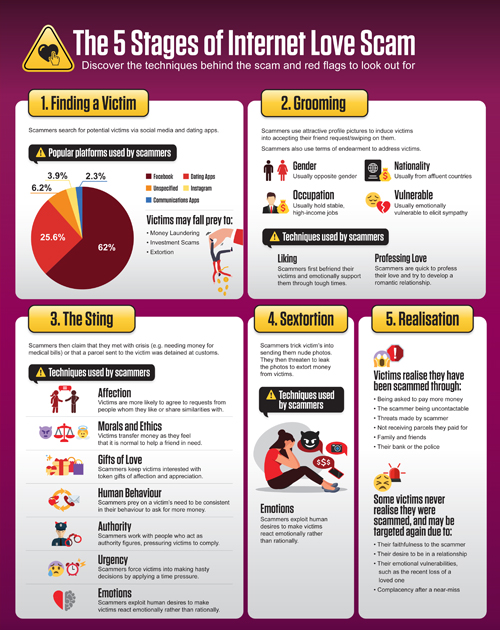A man in his 70s walked into UOB’s main branch in Raffles Place earlier this year and tried to send a cheque worth more than S$150,000 to an offshore account not in his name.
He said it was urgent as he was sending the money to his girlfriend in the Netherlands.
However, the account holder’s name and account number did not match, thus sparking suspicion among UOB staff.
UOB service associate Jenny Hong asked the man why he wanted to send the large sum, causing him to become flustered before revealing the reason.
Ms Hong alerted assistant branch manager Alison Cheng, and they tried to convince the man to stop the transaction, reported The Straits Times on Sept 18.
He said he had met his girlfriend two months ago, and told him she needed the money for a business deal and commission.
By then, the bank staff knew he was being scammed.
“It was odd because he was trying to bank in such a large amount of money into an account that was not his. He kept saying it was very urgent, and when I asked him more about it, his answers grew more and more incoherent,” said Ms Hong to ST.
The man was initially in denial, convinced that it wasn’t a scam but love. He was also aware of the multiple reports on love scams.
It took the staff 30 minutes to persuade the man, and he eventually realized he almost fell victim to the same scam.
“The man was suddenly resolute and told us not to carry out the transaction,” said Ms Cheng.
He also filed a police report on the incident.
According to scamalert.sg, an internet love scam starts when the victim is befriended by an attractive person (usually foreign) online.
“After gaining your trust, they ask you for money as proof of love. He or she will tell a tale about falling into trouble or hard times and ask for a loan from you. Once the money is transferred, the scammer disappears.”
Some signs of an Internet love scam are fast profession of love, no video calls, stories of tough times to gain sympathy and luxurious gifts to gain the victim’s trust.
Here’s a story from a member of the public who was a target of such scams.

It was reported that about S$20.7 million had been lost to love scams in the first half of 2022. /TISG


